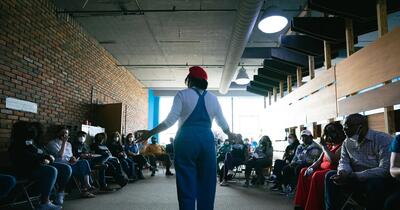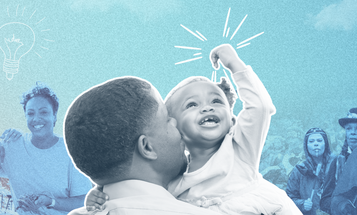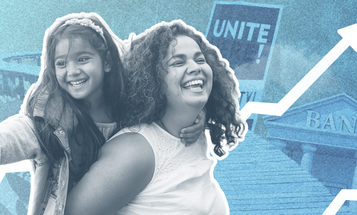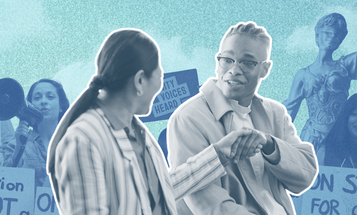
Movement School Is a Program to Train Young Progressive Candidates and Campaign Staff
"Supporting year-round civic engagement provides an entry point for communities to begin to engage more intentionally with the political system at the local, state, and federal levels."

“Welcome to the fammmmm!” reads a bright orange slide. It’s about 7:15 on a mid-March evening and the first night of orientation for Movement School’s campaign fellows program. Despite the later time, that it’s a Monday, and that this is happening on Zoom, the mood is bright, supportive, and convivial.
The 55-member cohort of new trainees, plus trainers, mentors and Movement School staff, are kicking off an eight-week training program and campaign simulation. The goal: Train young, working-class people, people of color, and people from marginalized communities in how to run and lead progressive campaigns, both issues-based and electoral.
[...]
For Duverge and the Movement School's purposes, it’s necessary to elect people who have struggled with these issues and will govern as such.
[...]
Angela Hanks, chief of programs at the think tank Demos, also points out the lack of authentic community engagement in traditionally run campaigns. “We hear from our grassroots partners that part of the challenge is how politicians often show up when they need to win an election, and then they leave,” Hanks explains via email. “This approach of dropping in right before an election does little for the community that people may be trying to rally. But supporting year-round civic engagement provides an entry point for communities to begin to engage more intentionally with the political system at the local, state, and federal levels.”
Says Hanks, when it comes to creating policies and making decisions, looking to people who have been disempowered is a good place to start. “Black and brown communities, and other impacted groups who have been traditionally overlooked in decision-making processes, benefit from having the tools, training, and resources to build an inclusive and just economy and democracy,” she explains. “It’s also a matter of ensuring that communities who often aren't asked what they want or need are at the center of both developing and achieving policy change.”




